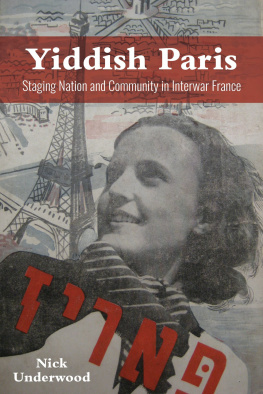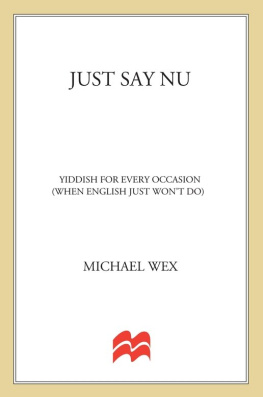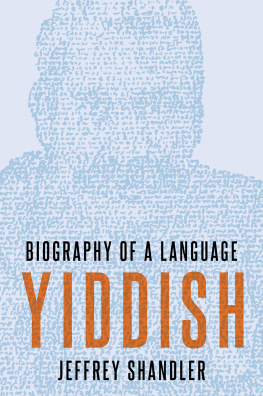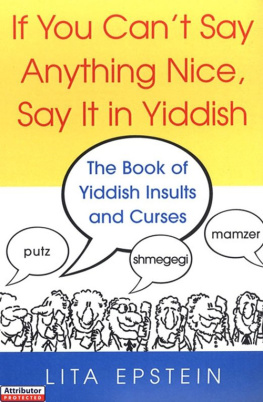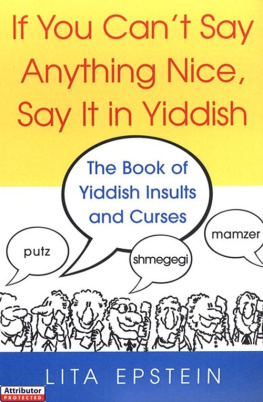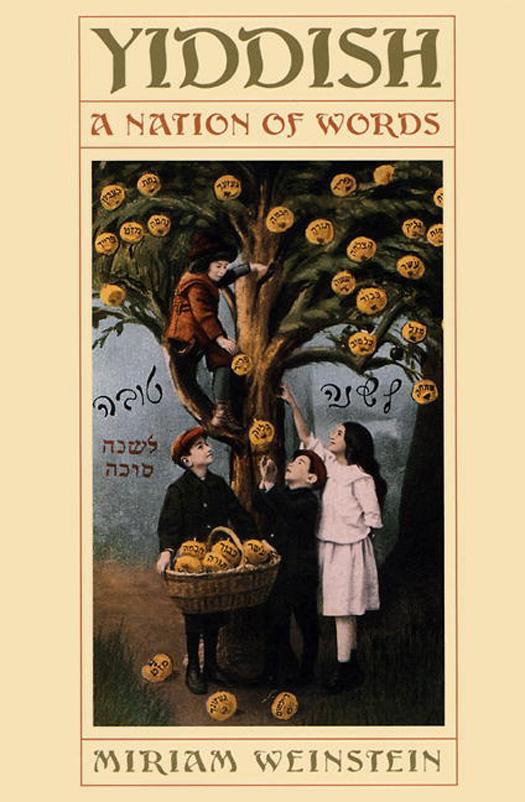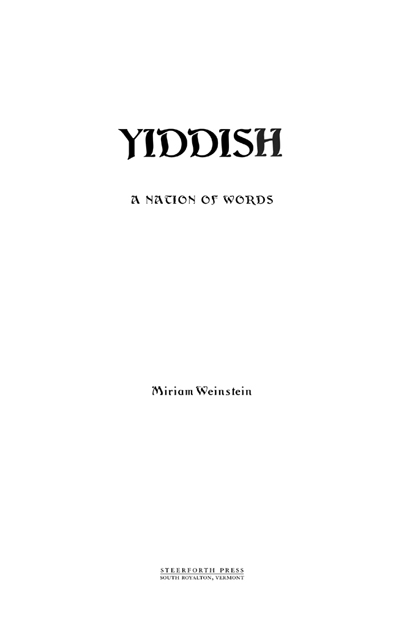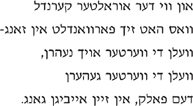Miriam Weinstein - Yiddish: A Nation of Words
Here you can read online Miriam Weinstein - Yiddish: A Nation of Words full text of the book (entire story) in english for free. Download pdf and epub, get meaning, cover and reviews about this ebook. year: 2012, publisher: Steerforth Press, genre: Home and family. Description of the work, (preface) as well as reviews are available. Best literature library LitArk.com created for fans of good reading and offers a wide selection of genres:
Romance novel
Science fiction
Adventure
Detective
Science
History
Home and family
Prose
Art
Politics
Computer
Non-fiction
Religion
Business
Children
Humor
Choose a favorite category and find really read worthwhile books. Enjoy immersion in the world of imagination, feel the emotions of the characters or learn something new for yourself, make an fascinating discovery.

- Book:Yiddish: A Nation of Words
- Author:
- Publisher:Steerforth Press
- Genre:
- Year:2012
- Rating:4 / 5
- Favourites:Add to favourites
- Your mark:
Yiddish: A Nation of Words: summary, description and annotation
We offer to read an annotation, description, summary or preface (depends on what the author of the book "Yiddish: A Nation of Words" wrote himself). If you haven't found the necessary information about the book — write in the comments, we will try to find it.
For a thousand years Yiddish, was the glue that held a people together. Through the intimacies of daily use, it linked European Jews with their heroic past, their spiritual universe, their increasingly far-flung relations. In it they produced one of the worlds most richly human cultures.
Impoverished and disenfranchised in the eyes of the world, Yiddish-speakers created their own alternate realitywealthy in appreciation of the varieties of human behavior, spendthrift in humor, brilliantly inventive in maintaining and strengthening community. For a people of exile, the language took the place of a nation. The written and spoken word formed the Yiddishland that never came to be. Words were army, university, city-state, territory. They were a peoples home.
The tale, which has never before been told, is nothing short of miraculousthe saving of a people through speech. It ranges far beyond Europe, from North America to Israel to the Russian-Chinese border, and from the end of the first millennium to the present day. This book requires no previous knowledge of Yiddish or of Jewish historyjust a curious mind and an open heart.
Miriam Weinstein: author's other books
Who wrote Yiddish: A Nation of Words? Find out the surname, the name of the author of the book and a list of all author's works by series.

